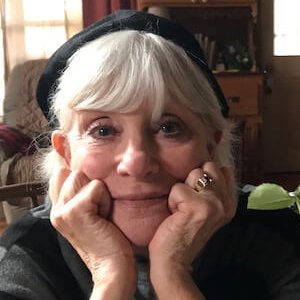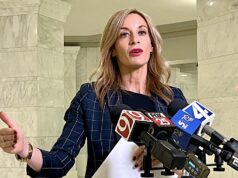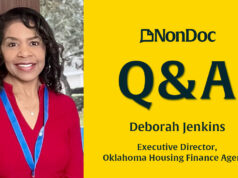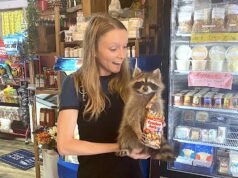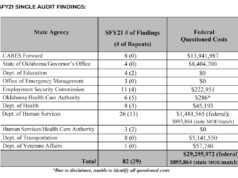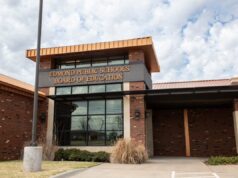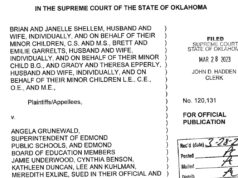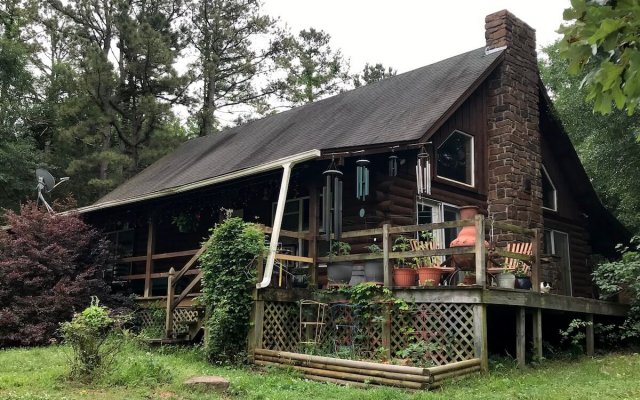

April 16, 2020
Red Oak
Tomorrow marks the end of the fifth week that my husband Les and I have been in lockdown. Except for a couple of pharmacy runs and a quick sashay through the grocery store garbed in masks and gloves, grabbing milk, eggs and salad makings, no trips out. No one coming in.
We have cleaned out closets and mowed lawns, painted rocking chairs and looked through boxes of old pictures. We have eaten good food, because our freezer is full of homegrown beef and our pantry is full of tomato sauce, peach jam, and apple butter that we canned last summer. I’ve read nine novels and spent a lot of time on Facebook. Les knows all about the building of St. Peter’s Basilica now, and sailing the South Seas in a catamaran, and designing the most efficient chicken coop.
I take daily walks with my outside dog, Dolly, and our strolling cat, Dawn. I do yoga, pull weeds, laugh, pray, sing and take lots of pictures of paradise, where we live: two hundred acres of mountains, creeks, forests of pine and southern hardwoods, green pastures dotted with wildflowers and deep, clear ponds. It is so beautiful. It is so quiet. It is so isolated. It is so lonely. I am surrounded by ghosts.
* * *
The whispers of past conversations, the echoes of past laughter, the faded glimpses of children, now grown, and animals, now buried, are on the wind. The smell of huge family meals and the clink of wine glasses aglow in the reflection of the chimanaya shadow me. Hints of the active life that once flourished here lie beyond every gate, behind every door.
We’ve lived here for twenty years, in a log cabin we built ourselves. The cabin is nestled against a rocky ridge, gently protected by tall whispering pines; it is linked by a pasture with my folks’ place across the way. We can sit on our front porch and hear their soft voices murmuring on their porch as they talk over their day. Or we could. Daddy died five years ago. Mother followed him seven months later.
My parents’ house looks much like it did the day we brought Daddy home in an ambulance so he could die in his own bed. He wanted to do that. Mama didn’t get to die in that bed, where she held Daddy’s hand as he crossed over (or at least she liked to remember that she was holding his hand—when she could remember that he was dead at all). I have always been burdened with the decision my sisters and I made to take Mom to the nursing facility for the last weeks of her life.
I’d made up my mind to bring her home on the June evening of my last visit. “I love you, Mom.” I stood at the door to her room. “I love you, too. Shug.” She looked so tiny, tucked in the burgundy recliner that we’d brought from home, the one that matched Daddy’s. No mention of him, dead or alive; she was doing so much better. That was why I thought I could bring her home. “I’ll see you tomorrow,” I said. “Not early, though. I have to clean the chicken house early before it gets too hot.”
At 9 a.m., just as I was finishing up in the chicken coop, the nursing home called. She was gone. Peacefully, in her sleep, they said. She’d finally caught up to Daddy. I think of them both now as the coronavirus tears through nursing facilities all over this country with such ruthless efficiency. We’re never ready to lose them. Not ever. But I am so glad they did not have to go that way.
I couldn’t have imagined how life would change. They were our foundation. The core of it all. I’d retired, after teaching for 30 years, to take care of them. And then they died. Students no longer came to our house for cookouts and Christmas parties; I had no students. Our grandchildren grew up. We had no dark-haired, blue-eyed boys to spend their summers here. Gradually, one by one, the animals died: our llama, our blackbelly sheep, our too-shy border collie, our marmalade cats. Getting older ourselves, we sold our cows. Coyotes killed our chickens and ducks. The family weaned away from the farm. There were no more holiday dinners at Red Oak. “It’s just not the same,” my nieces and grandchildren say.
My husband and I began to create a new life. In our 70’s, we are healthy and happy. We travel. I volunteer. We have the Latimer County Arts Council, which we founded, and friends, and church. We have re-discovered our love for theatre, directing and acting in community productions. Life is good. Different, but good.
Until Covid-19 slithered into our lives. Now we are here. Isolated. Quarantined in paradise. Sheltered by memories. Face to face with our own mortality because there are no diversions. Time passes. This farm once was a rocky woodland, before Daddy cleared it with back-breaking labor, and it will be again. Already blackberry vines and wild honeysuckle weigh down the fences. Fire ant mounds and armadillo holes mar the once beautiful pastures. It makes me sad, but I can’t stop it.
The only sounds I hear now are the wind blowing through the pines, birdsong, wind chimes, and the peals ringing out the hour on the ancient clock in our living room. The hour doesn’t matter, of course, because we have no deadline, no place we have to be. We are surrounded by what was and what might have been. It’s hard to see what will be.
When I do my morning Sun Salutation and I start the Warrior poses, I focus down the length of my right arm, peering through the east-facing balcony doors of my bedroom loft toward what I think of as the Past; then I turn 180 degrees to gaze along my left arm out the west windows to the Future. It all looks the same. Green leaves, pine fingers dropping needles and cones. It is dense, shadowing, shading. Neither my eyes nor my spirit can penetrate.
Only when I look up in the Triangle pose do I see Now. And it is not visionary or brilliant or inspiring. Just the ceiling of my bedroom. But it is Here. Right now. Present.
(Editor’s note: This is the fourth installment in a series of pandemic diaries by Oklahoma writers. Read the rest of the series here.)









